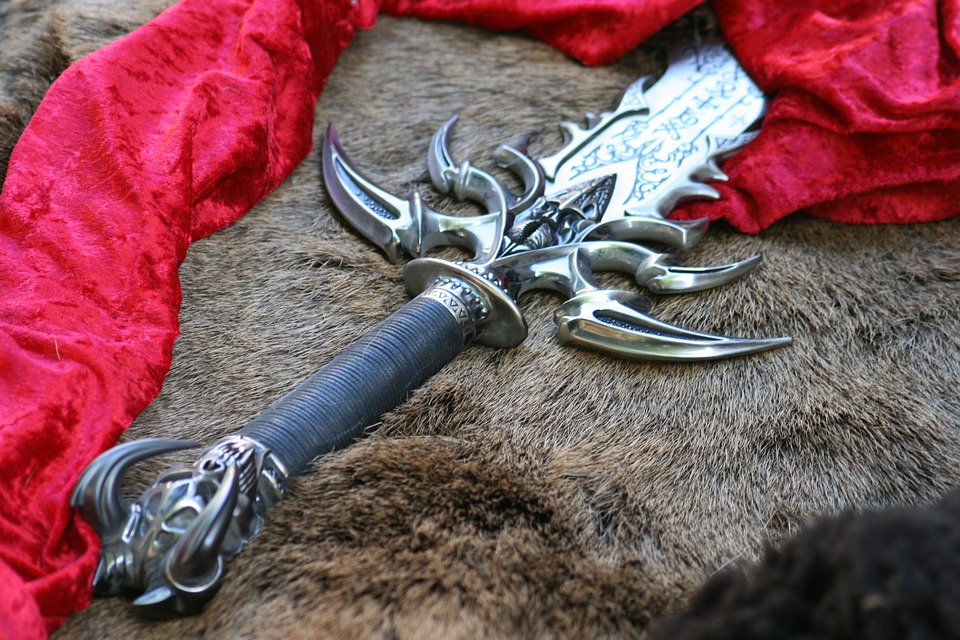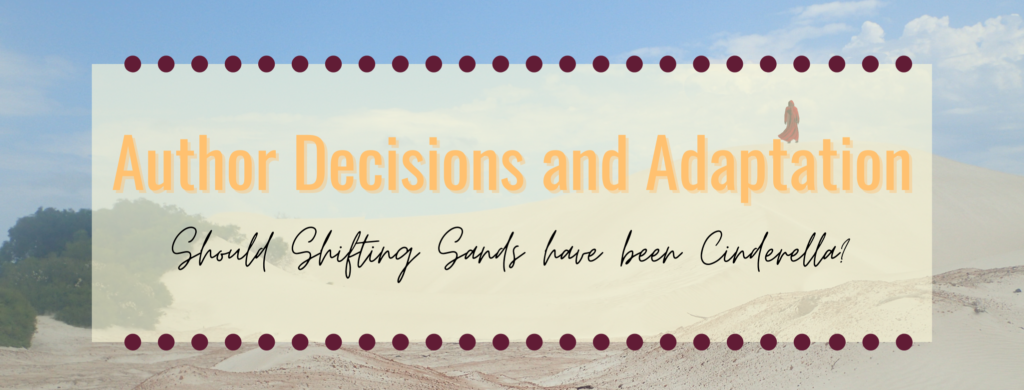The last couple of posts have been quite focused on my research side so, for this week, I thought I’d continue talking about fantasy but in a lighter way, having a little fun with it. Let’s talk fantasy tropes: the Chosen One.
What is it?
The Chosen One is a classic fantasy trope where, as you can probably predict, a character – usually the protagonist – has some special destiny ahead of them. This can be through being the subject of a prophecy (Harry Potter/Anakin Skywalker), receiving a special object (Arthur), having some sort of cosmic destiny (Elsa)… There’s a few different varieties. Despite this, you can usually spot a Chosen One narrative through the character’s arc as they usually follow the structure of Joseph Campbell’s Hero’s Journey fairly closely. Compare almost any story where one particular character gets a special mission that only they can do (for whatever reason), and you’ll start to see the Chosen One pattern. It’s a classic in fantasy, folklore, and even a lot of religious stories, and I doubt it’s going to disappear any time soon.
Pros
Familiar tropes can let the author experiment in other ways. Got to keep that familiar/unfamiliar balance, you know?
It provides immediate investment. The reader understands the stakes without any drawn out explanation.
The many varieties mean many options.
The familiarity makes it fun to twist and subvert expectations.
Cons
Very common. This can make your story overly predictable (and therefore boring) if not done well.
A Chosen One protagonist is usually pretty boring, being so consumed by their mission. They need good allies to avoid this!
Can make your plot too convenient if every problem is solved the Chosen One’s special abilities.
My favourites
The Chosen One trope is just about everywhere in fantasy. Maybe it’s the fact that so many of our stories are inspired by folklore? But, as mentioned in the cons section, the fact it’s so common makes it harder to do well. That said, I still love a good Chosen One story because I love seeing how authors take ownership of it. If they’ve managed to get me invested, despite the fact that I’m about 90% sure of how things will end, they’ve done good. So, let’s take a look at some of my favourites.
Percy Jackson and the Olympians (2005-2010)
I’m not sure you could get a more classic Chosen One story. Riordan’s work pulls from myth and so it naturally has everything you’d expect from a Chosen One plot: a character who discovers he’s amazing in some way, then a prophecy (several actually), literal journeys into the underworld… What I love most about this one though, is that it plays with that familiarity. It constantly makes reference to myths (in this case, Greek) that we’re all at least somewhat aware of. It’s kind of a fun waiting game to see when certain characters or plot points are going to pop up. Even more fun is trying to guess where they’ll show up and how they’ll have changed to suit the more modern setting. The overall plot, while fairly familiar, plays with your expectations and almost pokes fun at itself for following them (and pokes fun at you when it twists them unexpectedly). It makes Percy Jackson an enjoyable read because I don’t have to work for it but I’m also not left bored.
Percy Jackson is also one of the few Chosen One stories I like where the protagonist genuinely is one of my favourite characters. Percy is the kind of hero who sees the crazy stuff in front of him and has the reaction we all realistically would. Compared to other Chosen Ones we know and love (and intensely dislike the creators of), he doesn’t wallow in this constant pit of self-sacrifice and boneheaded nobility, trudging forward to the end with things happening to him. Despite the prophecy, so much of Percy’s journey in his series is caused by him. His actions. Him being a Chosen One feels more like an additional quality than a personality trait and I appreciate that in a character.
Cinder (2012)
While generally categorised as a sci-fi text, Cinder uses a hell of a lot of fantasy influences, including a Chosen One. As someone who spent a year of my undergrad obsessing over all things Cinderella (dissertation, you know?), I naturally have to love Cinder for its take, but, more than that, it’s the Sailor Moon influences that get me. Cinder doesn’t take up red boots to go and fight monsters or anything, but throughout my first read, I could sense something familiar about the world. Discovering that the author, Marissa Meyer, was also a lover of Sailor Moon made it all click into place. The 90’s Sailor Moon anime is one of those shows that I go back to whenever I need a mental escape so, while having a Chosen One isn’t the main reason I love it, I knew I had to add Cinder here.
Cinder, as a character, is a fairly classic lost princess Chosen One. She starts life in a pretty low place, basically living on the fringes of society as a cyborg in a world that detests them. Through the course of the story, however, she ends up pieces together the answers to a few different mysteries (most of which end up being interlinked) and discovers her true identity in the process. Beyond being a mash-up of two of my loves, Cinderella adaptations and Sailor Moon, I think it’s probably this aspect that makes Cinder such a good Chosen One story. The puzzle comes together piece by piece, with Cinder initially getting involved because of who she is as a person, so that the reveal is satisfying without feeling overdone.
Avatar: The Last Airbender (2005-2008)
Not a book, I know, but it’s an awesome Chosen One story. Orphan boy (at least by the time we first meet him) has the potential to wield extreme power, but also has to face a terrible mission. What works well with ATLA is that we essentially meet Aang after he’s already tried rejecting the responsibility of being the Chosen One and get to see him struggle with the consequences of that decision. Despite being a Chosen One with cosmic responsibilities, his backstory and growing relationships with other characters are much bigger motivators in his journey.
And ATLA is further strengthened by those other characters. While Aang’s journey provides a strong thread across the series, it’s supported by and woven through the stories of the other characters. Bit of a SPOILER here for those who haven’t watched the series, but Aang’s end battle, while beautiful, doesn’t actually hold all that much tension in it because he has had his moment of self-doubt already and we know that somehow he will win. The true tension comes from what’s happening with the other characters. We see Zuko finally pit himself against Azula (with Katara there, which would make more narrative sense if Zutara had been endgame, but, you know, I’m not bitter). Sokka finally gets to step up and show himself as the warrior he always wanted to be, demonstrating his strengths as a tactician, but there’s so much pitted against him. Toph is with him but she’s totally out of her element, raising the tensions for a character who is usually strong and pretty unflappable. ATLA works well because it doesn’t rest on the Chosen One narrative and instead uses it as a thread to bind other stories together.
Am I using it in Shifting Sands?
Yes and no. One of the characters, Nayoub, absolutely believes in a prophecy from the Temple’s holy scriptures (the Words). Said prophecy, rather typically, predicts that a child born in death will bring the goddess, Solzari, back to earth to destroy the unworthy. This prophecy could apply to any number of characters, but he decides that it must be about the child he looks after. He’ll make sure of it. The other characters, meanwhile, don’t really think about it, either because they don’t believe in the Gods, or because they don’t take the Words literally. It’s up to you, dear reader, to decide whether you want to invest in the prophecy idea or not.
So, that’s the Chosen One. I’d love to hear about your favourite Chosen One stories – it’s always good to expand my TBR! And, if you’ve got any requests for a fantasy trope I should whiz through next, please let me know.



